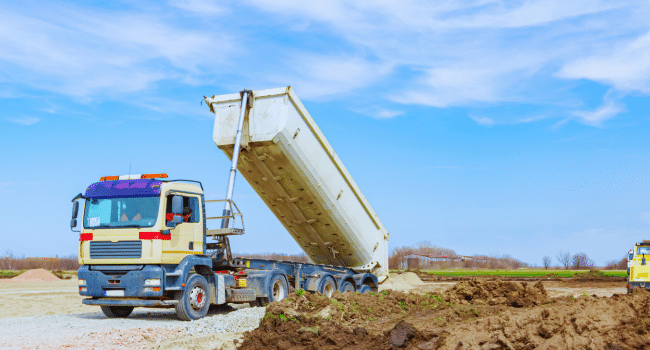Table of Contents
Advancements in technology have permeated every aspect of life, and the sector of transportation and towing is no exception. The increasing demands for efficiency and safety in the transportation of goods have led to significant technological improvements. Among these, the emergence and refinement of the hydraulic tipper trailer stands out as a game-changer in the world of trailers.
The Evolution of Trailer Technology
Trailers have long been an integral tool for businesses and individuals needing to haul goods or materials from one location to another. In the early days, these were nothing more than simple, flat platforms attached to vehicles. Over time, trailers evolved to meet different needs such as enclosed designs for weather protection and specialised trailers for specific types of cargo.
Introduction of Hydraulics
With the advent of hydraulic technology in the transportation industry, trailers experienced a transformational change. Hydraulics introduced the ability to raise and lower the bed of the trailer, making loading and unloading infinitely more manageable and time-efficient. This ability became especially crucial for industries dealing with bulk materials like construction, agriculture, and mining.
Benefits of Hydraulic Tipper Trailers
The introduction of hydraulic tipper trailers brought about a multitude of benefits for their users. One significant advantage is the increase in safety. Traditional methods of unloading heavy materials often required manual labour, which posed risks of injury. With hydraulic trailers, this process is automated, substantially reducing the likelihood of accidents.
Another key benefit is the enhancement of efficiency. Time is a critical asset in any industry, and hydraulic tippers significantly cut down the time required for loading and unloading. This optimisation of the process means more trips can be completed within the same timeframe, increasing the overall productivity of operations.
Design and Durability
The design of hydraulic tipper trailers is tailored to withstand the demands of rigorous use. They are often constructed with robust materials to bear heavy loads and are meticulously engineered to ensure stability when the hydraulic system is in operation. Durability is also a core focus, with the trailers being built to last and endure challenging working environments.
Technological Enhancements in Hydraulic Tippers
Over time, the technology underpinning hydraulic tippers has seen noticeable enhancements. From improved hydraulic mechanisms that offer smoother operation and better control to the integration of electronic systems that can provide diagnostic and tracking information, these trailers are at the forefront of innovation.
User-Friendly Features
Modern hydraulic tipper trailers are increasingly designed with the user in mind. Features such as wireless controls and advanced hydraulic systems that can be operated with precision make these trailers not only more efficient but also significantly easier and safer to use.
Environmental Considerations
As environmental concerns become more prevalent, hydraulic tipper trailers have adapted to be more eco-friendly. Lightweight materials that do not compromise on strength are being implemented to reduce the overall weight of the trailer, leading to better fuel efficiency and reduced carbon emissions.
The Role of Hydraulics in Environmental Sustainability
Hydraulic systems themselves are evolving to be more environmentally friendly. Advances in hydraulic fluids that are biodegradable and less toxic help mitigate the environmental impact in the event of a spill, further showcasing the commitment of the industry to sustainability.
Choosing the Right Hydraulic Tipper Trailer
For those in industries that would benefit from the use of a hydraulic tipper trailer, it is essential to select the right equipment. Considerations such as load capacity, bed size, and the hydraulic system’s quality must be carefully evaluated to ensure that the trailer meets the specific needs of the operation.
Factors to Consider When Purchasing
Aside from the basic specifications, potential buyers should also consider the trailer’s compatibility with their towing vehicle, the availability of spare parts, and the level of after-sales support offered by the manufacturer or dealer.
The Future of Hydraulic Tippers
Looking to the future, it is evident that hydraulic tipper trailers will continue to evolve. The integration of smart technologies such as IoT (Internet of Things) sensors and automation may soon enable these trailers to operate with even greater efficiency and fewer human interventions.
Prospects for Automation and Connectivity
With the rise of autonomous vehicles on the horizon, the potential for self-operating hydraulic tippers is an exciting prospect. Connectivity could also play a role, with trailers communicating with other vehicles and systems to ensure optimal routing and operation.
Conclusion
The rise of the hydraulic tipper trailer stands as a testament to the power of innovation in improving the efficiency, safety, and environmental impact of towing operations. As advancements continue at a rapid pace, one can only imagine the level of sophistication these trailers will reach in the years to come, offering enhanced possibilities for industries worldwide.
The Driving Force of Progress
It is clear that the continued development of hydraulic tipper trailers will remain a driving force in the progress of many sectors. Through their convenience, safety benefits, and environmental consideration, they epitomise the advancements in trailer technology, setting a high bar for towing and transportation solutions of the future.
